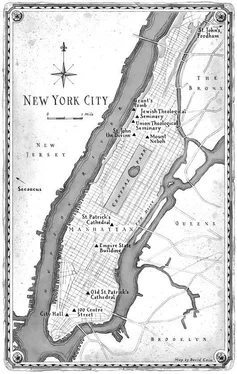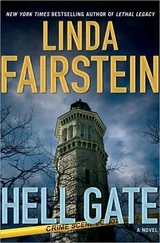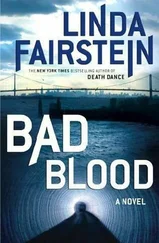Fairstein, Linda - Silent Mercy
Здесь есть возможность читать онлайн «Fairstein, Linda - Silent Mercy» весь текст электронной книги совершенно бесплатно (целиком полную версию без сокращений). В некоторых случаях можно слушать аудио, скачать через торрент в формате fb2 и присутствует краткое содержание. Год выпуска: 2011, Жанр: Триллер, на русском языке. Описание произведения, (предисловие) а так же отзывы посетителей доступны на портале библиотеки ЛибКат.
- Название:Silent Mercy
- Автор:
- Жанр:
- Год:2011
- ISBN:нет данных
- Рейтинг книги:5 / 5. Голосов: 1
-
Избранное:Добавить в избранное
- Отзывы:
-
Ваша оценка:
- 100
- 1
- 2
- 3
- 4
- 5
Silent Mercy: краткое содержание, описание и аннотация
Предлагаем к чтению аннотацию, описание, краткое содержание или предисловие (зависит от того, что написал сам автор книги «Silent Mercy»). Если вы не нашли необходимую информацию о книге — напишите в комментариях, мы постараемся отыскать её.
Silent Mercy — читать онлайн бесплатно полную книгу (весь текст) целиком
Ниже представлен текст книги, разбитый по страницам. Система сохранения места последней прочитанной страницы, позволяет с удобством читать онлайн бесплатно книгу «Silent Mercy», без необходимости каждый раз заново искать на чём Вы остановились. Поставьте закладку, и сможете в любой момент перейти на страницу, на которой закончили чтение.
Интервал:
Закладка:
“In December?”
“Exactly. The diagnosis was made at the Bellevue clinic, one of the few in the country that specializes in the disease. Mercer read me the notes.”
“How was it diagnosed? How advanced is it?”
“To begin with, the germ that causes leprosy attacks the skin and the nerves. The skin lesions developed first, a couple of years ago. They were small initially, then became larger and larger — festered and blistered. But because of the tendency for Fyodor to use makeup for performances, he was able to cover it up.”
“He must have been in complete denial. That — and the fact that nobody thinks about leprosy today, except in third-world countries.”
“Mercer says Bellevue’s got five hundred people in their program, right in New York City.”
“And Fyodor Zukov is one of them?”
“No. They wanted him to be treated, but he was so devastated by the diagnosis that he didn’t come back. Not until the day that Naomi Gersh disappeared.”
“Why then?” Mike asked.
“For pain medication.”
“Shit. And they gave it to him?”
“Yes, he promised to enroll in the program, and they gave him a scrip for pain meds,” I said, thinking of the drugged and drowsy voice of Chat Grant. “Oxycodone. A two-week supply.”
“It’s a narcotic and a painkiller, right?”
“Oh, yeah. It would do the job on our vics.”
“But if they were offering to treat him, why would he skip out?”
“The nurse who talked to Mercer interpreted the doctor’s notes. The disease has progressed pretty aggressively. Even though Fyodor couldn’t face telling his siblings — and certainly not circus management — he’d never be able to work again. The sensory impairment of his nerves — nerve paralysis, in fact — has already caused permanent deformities.”
“Where?”
“In addition to the weakness in his wrists, his fingers have begun to claw.”
“That’s what it’s called?” Mike asked.
“Irreversible clawing, yes, of the fingers and toes. It’s no wonder he dropped his partner,” I said. “The infection eventually invades the bones and destroys them. Without treatment, he’ll lose his extremities.”
“I’d be pretty devastated too.”
“The other thing was his eyebrows. Remember Faith telling us he had no eyebrows?”
“Yeah.”
“Classic symptom of leprosy.”
“But he’s got a full head of hair,” Mike said.
“That’s ’cause the head is warm. The bacteria invade the eyebrows because they’re much cooler than head hair.”
The road had narrowed from four lanes to two. Fog was settling in over the treetops and I could smell the saltwater as we neared the shoreline.
“Let me tell you about Penikese.”
It was hard to see the pavement for the thickening fog, and I slowed my pace briefly. I centered the car on the yellow line in the middle of the road and pressed down on the pedal.
“It’s one of the Elizabeth Islands, just north of Cuttyhunk. It’s only seventy-five acres.”
“The whole thing? Central Park’s more than eight hundred acres. You’re right about tiny,” Mike said. “You’ve been there?”
“Scores of times, mostly as a kid.” I could see Cuttyhunk and its three sister islands from the deck of my Vineyard bedroom. Penikese was out of sight, on the far north side of Cuttyhunk.
“There’s a ferry?”
“No ferry. No regular service at all.”
“Great. You planning a swim?”
“No. There’ll be something moving in the harbor,” I said. “My father kept his sailboat on the Vineyard. A Herreshoff — a twenty-eight-foot ketch. My brothers and I spent a lot of time exploring the islands. Then I fell in love with Adam, and he was a sailor too. Penikese held a fascination for him ’cause he was a medical student, so the diseased history of the place and its tragic sadness drew him there. But it somehow terrified me.”
“Why?”
“It’s jinxed — it’s always been that way. It’s got a miserably sad past.”
“How so?”
“Leprosy is one of the most dreaded conditions of humankind,” I said. “Until very recently, people believed it was contagious. Incurable and contagious.”
“It’s not?”
“Very rarely. There’s a genetic susceptibility.”
“So Zukov’s siblings might be in line?”
“It’s possible. Ninety-five percent of all people are immune to the bacillus. But in the old days, lepers were sent off to live in quarantine.”
“Leper colonies.”
“Isolated from their communities. And islands were the ideal solution. There was one in the East River, another off the coast of San Francisco, and the infamous colony on Molokai. People were shipped off forever, separated from their families, to live the rest of their lives — and to die — among strangers suffering with the same affliction. There was no coming back.”
“Penikese was one of them?”
“In 1905, Massachusetts created the Penikese Island Hospital on this lonely rock in the middle of the bay. Two doctors volunteered to staff it, and five patients — ripped from their homes and their children — were forced to be sent there.”
“How did they live?”
“The patients had to build their own shacks — small, wooden ones. They don’t exist anymore. Fishing boats would drop off fresh food from the mainland, once a week, depositing it at the end of the dock. Letters from home, that sort of thing. One-way service only.”
“And no one ever returned?”
“Not a single soul. The tombstones and crosses are proof of that. Most of the wooden markers have rotted away.”
“What scared you there, Coop?”
“As a kid it was the idea of plague pits. My older brothers would tie up the boat and we’d sneak ashore. I was afraid to go with them, and more afraid to wait alone. Everyone says the island has ghosts. Even a haunted mansion, way back in time.”
“Mansion? In a leper colony.”
“No, no. Before the state took it over. Long gone, but my brothers used to play in the old shafts and tunnels beneath it. That didn’t worry me — I was just too claustrophobic to go down into them — but the sad stories of the lepers really got to me.”
“Sounds like it.”
“The boys used to taunt me — tell me that if I stepped on one of the graves, the ghost of the leper would rise up and, well — kill me. When I was ten, eleven — I believed that.”
“You’ve been to ghost islands before.”
“Not so full of death as Penikese. Not with such a painful past. It’s one of the loneliest little outposts in the world.”
“How long did the hospital last?”
“Only about fifteen years. The government built a leprosarium in Louisiana. This pitiful place went out of business pretty fast after that. Then, about thirty years ago, someone had the idea to use the desolate setting as a school for delinquent boys — really dangerous ones. Kids who needed complete isolation to attempt to resocialize them. The success rate has been less than enviable.”
I could make out fog lights on the road ahead and I braked again, getting over to the right to avoid a pickup truck coming the opposite way. When I reached the traffic light in Falmouth, I could see that no one was approaching the intersection and I ran through the red signal. There was only one more stop sign between where we were and the harbor, then a twelve-mile boat run to Penikese Island.
“It’s biblical, you know,” Mike said. “Leprosy, I mean. Maybe that’s what’s haunting our killer.”
“It was considered a mark of God, wasn’t it? A sign to the priests that the leper was someone who had sinned.”
“Your boy Moses started the whole phobia, Coop.”
“I guess so. I remember in Leviticus, he directed the Israelites to exile lepers, to exile all those who had offended their God.”
Читать дальшеИнтервал:
Закладка:
Похожие книги на «Silent Mercy»
Представляем Вашему вниманию похожие книги на «Silent Mercy» списком для выбора. Мы отобрали схожую по названию и смыслу литературу в надежде предоставить читателям больше вариантов отыскать новые, интересные, ещё непрочитанные произведения.
Обсуждение, отзывы о книге «Silent Mercy» и просто собственные мнения читателей. Оставьте ваши комментарии, напишите, что Вы думаете о произведении, его смысле или главных героях. Укажите что конкретно понравилось, а что нет, и почему Вы так считаете.












